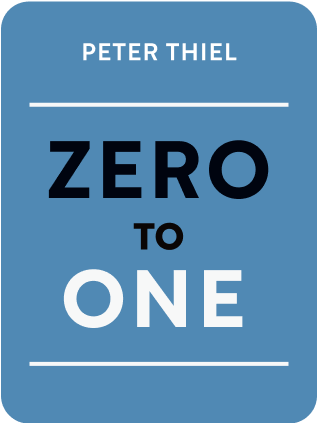

This article is an excerpt from the Shortform summary of "Zero To One" by Peter Thiel. Shortform has the world's best summaries of books you should be reading.
Like this article? Sign up for a free trial here .
What does Peter Thiel mean when he talks about secrets? What does he have to say about monopolies? What’s his “contrarian question”?
Zero to One is entrepreneur and venture capitalist Peter Thiel’s unconventional advice for technology startups. Thiel, co-founder of PayPal and the first outside investor in Facebook, argues that technology has stagnated. Most new companies improve incrementally on existing products, but Thiel argues that the most valuable and game-changing startups create something new—they move from “zero to one.”
Here are some of the best Zero to One quotes, along with context and explanation.
Zero to One Quotes
Thiel’s book offers a lot of wisdom for business leaders in general and entrepreneurs in particular. The following Zero to One quotes highlight some of the key ideas.
Every moment in business happens only once. The next Bill Gates will not build an operating system. The next Larry Page or Sergey Brin won’t make a search engine. And the next Mark Zuckerberg won’t create a social network. If you are copying these guys, you aren’t learning from them.
In Thiel’s view, technology has stagnated today. Much of what companies produce today simply replicates what they produced yesterday or, at best, improves upon it incrementally. This is because it’s easier to replicate existing designs than to create new and fundamentally superior ones.
In business, each jump from 0 to 1 happens only once. The next innovator of the same caliber will build something unimagined to this point. Successful people don’t look for formulas or choose from existing options, they “rewrite the plan of the world.”
The best entrepreneurs know this: every great business is built around a secret that’s hidden from the outside.
According to Thiel, today most people tend to assume that all the questions in the world are either insoluble or have already been solved: There are no secrets left; everything is either a mystery or a convention.
Thiel believes that there are still secrets left to be discovered. We haven’t found cures yet for cancer, dementia, or old age. We don’t really even have a good scientific understanding of nutrition. We need new sources of sustainable energy and better means of transportation. There are plenty of problems that are worth solving, and are likely possible to solve, but haven’t been solved yet. These are business opportunities.
What important truth do very few people agree with you on?
Thiel likes to ask job candidates what he calls a contrarian question: “What important truth do few people agree with you on?” What significant truth have you discovered that nobody else believes? Thiel affirms that you can sometimes answer this question by working backward. First, ask what is the conventional wisdom that everyone believes. Then consider what the opposite of that would be. According to Thiel, the opposite of conventional wisdom is more likely to be true than conventional wisdom. That said, he also emphasizes the importance of thinking for yourself rather than blindly following or opposing the crowd.
Monopoly is the condition of every successful business.
Thiel argues that monopolies are good for society as well as good for business. When a business has a monopoly (meaning it faces no significant competition in the market where it operates), it has the freedom to consider the welfare of its employees and the broader impact of its products and operations on society because profits are assured. By contrast, competitors locked in a daily struggle for survival have to do everything in their power to minimize expenses and don’t have enough resources left over to consider their impact on their employees or communities.
Moving first is a tactic, not a goal.
Your goal is to build a monopoly that will generate long-term profits by introducing a revolutionary product that no one else can match. Thiel observes that, to do this, you generally need to be the first to introduce your product. In industries where network effects and economies of scale are significant, the first product to rise to prominence becomes almost impossible to compete with.
As Thiel explains, this is known as the “first-mover advantage,” and he advocates using it to good effect. However, he also cautions that moving first is merely a means to an end, not an end in itself.

———End of Preview———
Like what you just read? Read the rest of the world's best summary of Peter Thiel's "Zero To One" at Shortform .
Here's what you'll find in our full Zero To One summary :
- Why some companies genuinely move the world forward when most don't
- How to build a company that becomes a monopoly (and why monopolies aren't bad)
- Silicon Valley secrets to selling products and building rockstar teams






